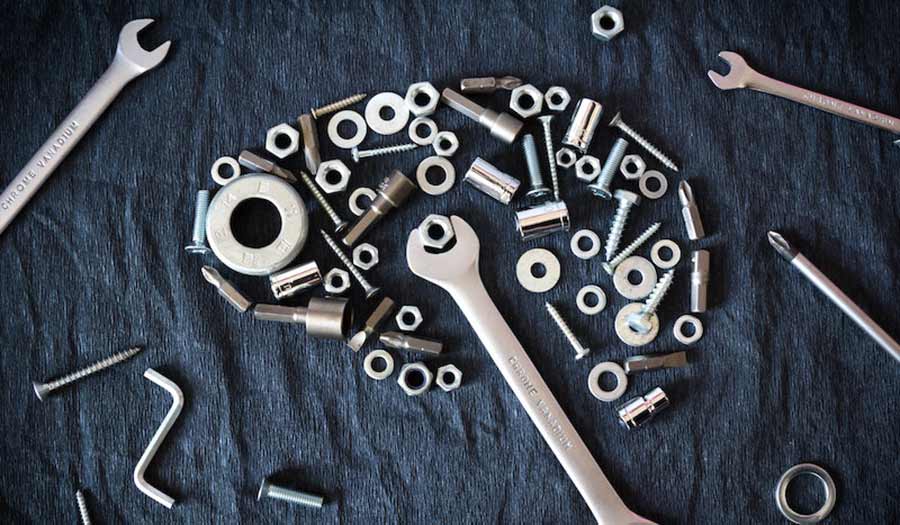 eight8/stock.adobe.com
eight8/stock.adobe.com
World News Desk
Learn the why behind the headlines.
Subscribe to the Real Truth for FREE news and analysis.
Subscribe NowOur ability to understand the syntax of complex sentences is one of the most difficult language skills to acquire.
In 2019, research had revealed a correlation between being particularly proficient in tool use and having good syntactic ability.
A new study, published in November 2021 in the journal Science, further proves this by showing both skills rely on the same region of the brain.
The study, conducted by researchers from Inserm, CNRS, Universite Claude Bernard Lyon 1 and Universite Lumiere Lyon 2 in collaboration with Karolinska Institutet in Sweden, also found that it works both ways. Motor training using a tool improves our ability to understand the syntax of complex sentences and—vice-versa—language training improves our proficiency in using tools.
Language has long been considered a very complex skill, mobilizing specific brain networks. However, in recent years, scientists have revisited this idea. Research suggests that brain areas, which control certain linguistic functions, such as the processing of word meanings, are also involved in controlling fine motor skills.
When considering this data, research teams could not help wondering: What if the use of certain tools, which involves complex movements, relies on the same brain resources as those mobilized in complex linguistic functions such as syntax?
Syntax Exercises and Use of Tongs
In 2019, Inserm researcher Claudio Brozzoli in collaboration with CNRS researcher Alice C. Roy and their team had shown that individuals who are particularly proficient in the use of tools were also generally better at handling the finer points of Swedish syntax.
In order to explore the subject in greater depth, the same team, in collaboration with CNRS researcher Veronique Boulenger, developed a series of experiments that relied on brain imaging techniques and behavioral measurements. The participants were asked to complete several tests consisting of motor training using foot-long pliers and syntax exercises in French. This enabled the scientists to identify the brain networks specific to each task, but also common to both tasks.
They discovered for the first time that the handling of the tool and the syntax exercises activates the brain in common areas.
Cognitive Training
Given that these two skill types use the same brain resources, is it possible to train one in order to improve the other? In the second part of their study, the scientists looked at these issues and showed that this is the case.
This time, the participants were asked to perform a syntactic comprehension task before and after 30 minutes of motor training with the pliers. With this, the researchers demonstrated that motor training with the tool leads to improved performance in syntactic comprehension exercises.
In addition, the findings show that the reverse is also true: training of language faculties, with exercises to understand sentences with complex structure, improved motor performance with the tool.
Motor Training and Syntax Exercises
The motor training involved using the pliers to insert small pegs into holes that matched their shape but with differing orientations.
The syntax exercises which were completed before and after this training consisted of reading sentences with a simple syntax, such as, “The scientist who admires the poet writes an article.” Sentences with more complex syntax included, “The scientist whom the poet admires writes an article.” Then the participants had to decide whether statements such as, “The poet admires the scientist,” were true or false. Sentences with the French object relative pronoun “que” are more difficult to process and therefore performance was generally poorer.
These experiments show that after motor training, the participants did better with the sentences that were considered to be more difficult. The control groups, which performed the same linguistic task but after motor training using their bare hands or no training at all, did not show such an improvement.
Get Started
Along with linguistic skills, working with your hands has been proven the key to building focus, mental dexterity and creativity. More important, it brings purpose and passion to your life.
Our article “Make Something!” discusses why this is, and shows you do not have to be a handyman to reap the rewards. It is really simple to get started.
More on Related Topics:
- Pagers and Drones: How Hezbollah Aims to Counter Israel’s High-tech Surveillance
- U.S. as Many as 15 Years Behind China on Nuclear Power, Report Says
- Bird Flu Is Highly Lethal to Some Animals, but Not to Others. Scientists Want to Know Why
- China Lands on Moon’s Far Side in Historic Sample-retrieval Mission
- What the April 8 Eclipse Really Meant


